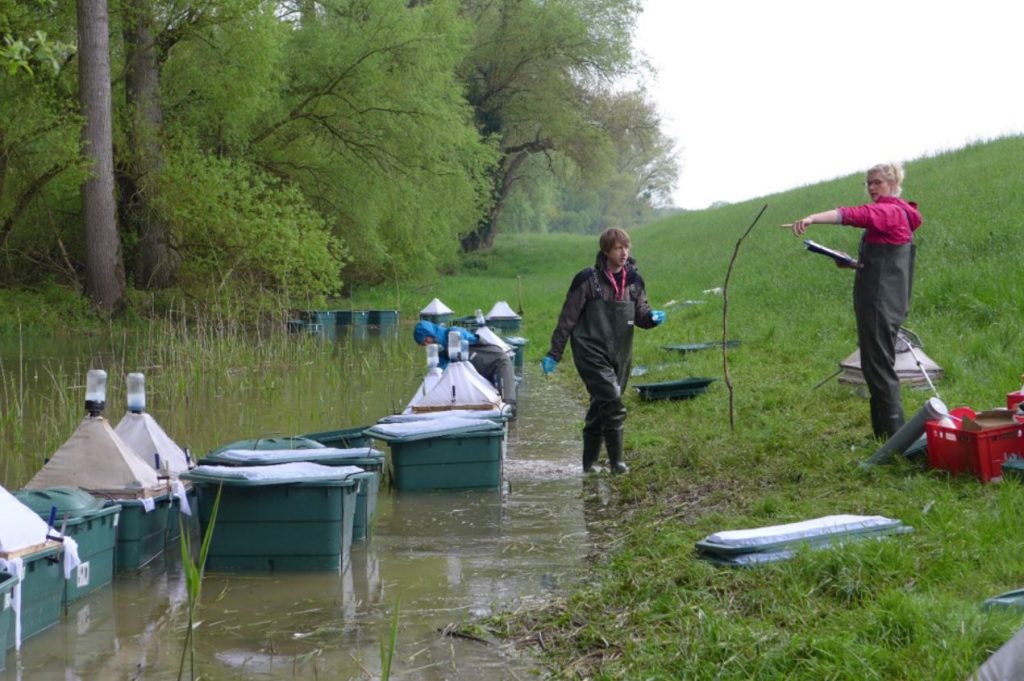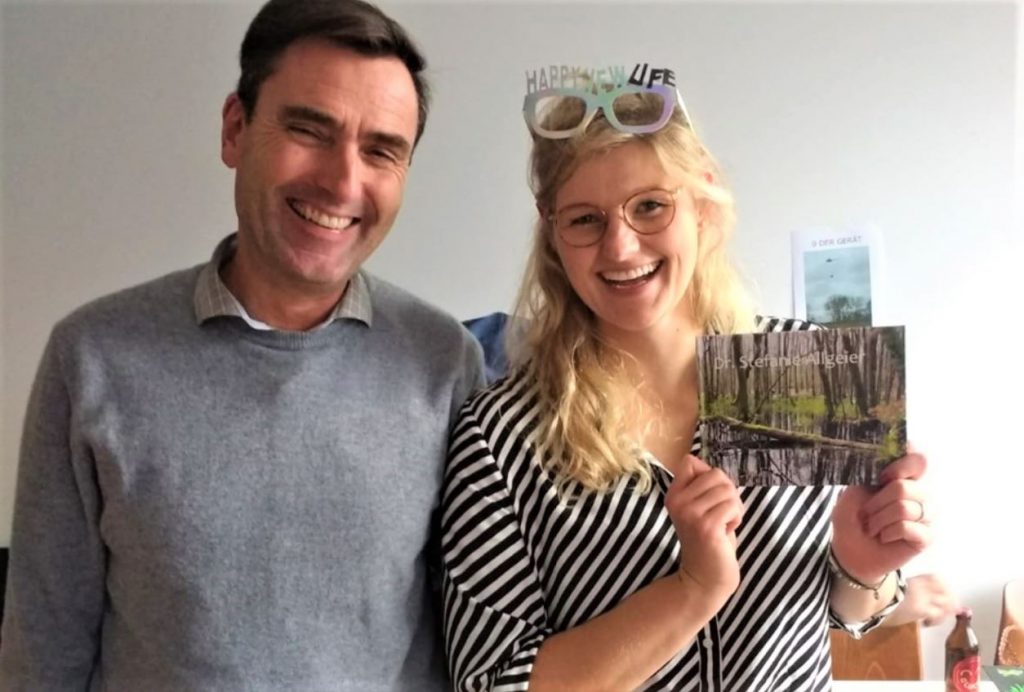In December 2019, Stefanie Allgeier successfully defended her Ph.D. on environmental effects of mosquito control with Bacillus thuringiensis israelensis (Bti).
Carsten Brühl reflects on Stefanie’s journey:
Stefanie started working on this subject in her master thesis and extended it in her Ph.D. in the project “Establishment of a nature conservation-compatible concept for mosquito control”, funded by the German Federal Foundation for the Environment (DBU). Stefanie performed laboratory studies with non-target midges and amphibians, extended some questions in microcosms, e.g. including additional stressors such as predators, and was also busy with complex field-studies at various sites.

She did not only conduct environmental studies but was also evaluating people’s thoughts on mosquito control in the Upper Rhine Valley using a biocidal product. In conclusion, Stefanie states “As Bti-based mosquito control can adversely affect wetland ecosystems, its large-scale applications, including nature conservation areas, should be considered more carefully to avoid harmful consequences for the environment at the Upper Rhine Valley.“
Thank you very much for the great work and all the effort you put in this, Steffi, and all the best for your future projects!

Stefanie’s thesis “Mosquito control based on Bacillus thuringiensis israelensis (Bti) -Ecological effects on wetland food chains and public acceptance of control Alternatives” is based on six publications and can be found here.
The German report on the DBU project “Entwicklung eines naturschutzkonformen Konzeptes zur Stechmückenbekämpfung am Oberrhein“ can be downloaded here.
